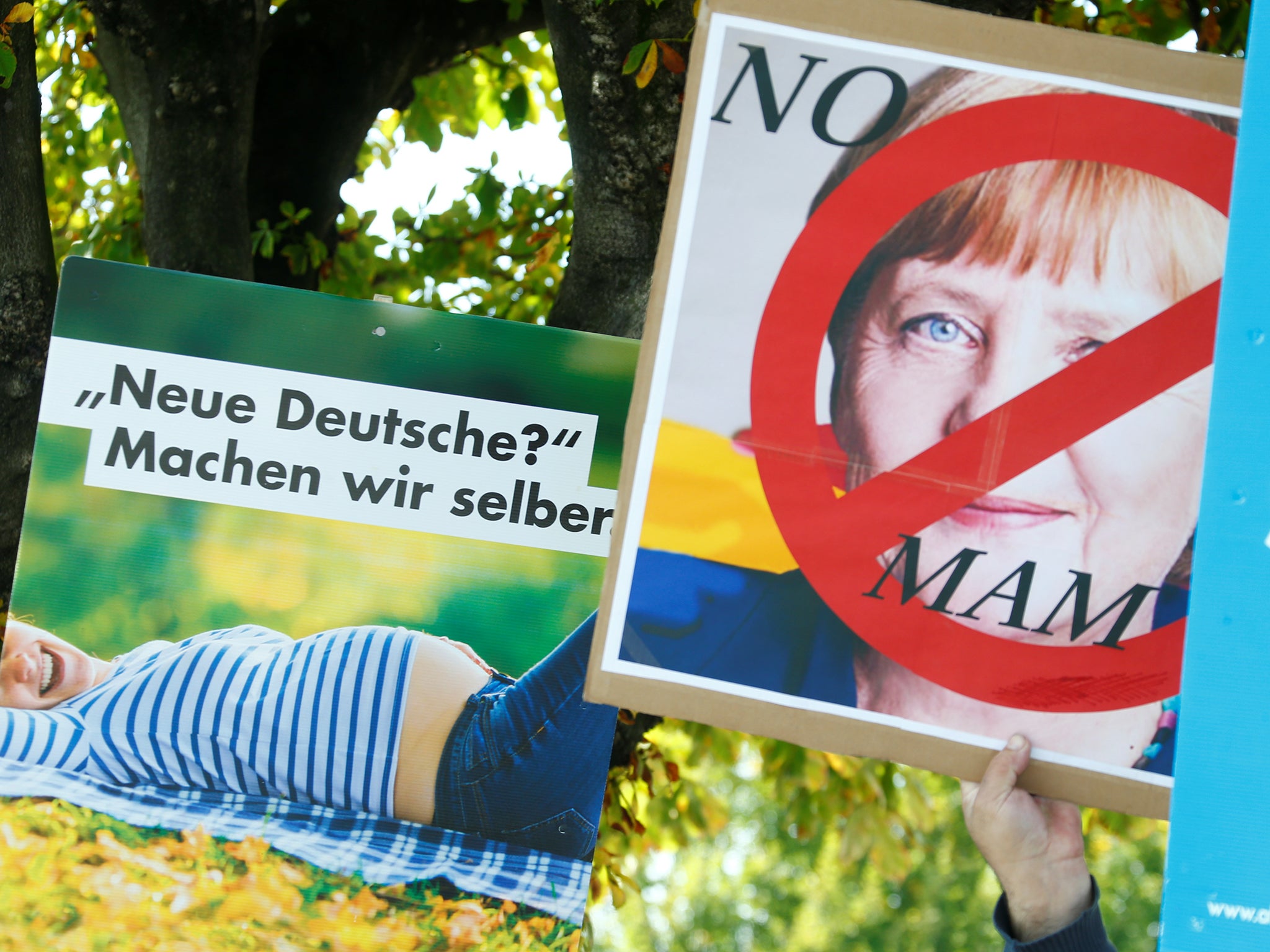Your support helps us to tell the story
From reproductive rights to climate change to Big Tech, The Independent is on the ground when the story is developing. Whether it's investigating the financials of Elon Musk's pro-Trump PAC or producing our latest documentary, 'The A Word', which shines a light on the American women fighting for reproductive rights, we know how important it is to parse out the facts from the messaging.
At such a critical moment in US history, we need reporters on the ground. Your donation allows us to keep sending journalists to speak to both sides of the story.
The Independent is trusted by Americans across the entire political spectrum. And unlike many other quality news outlets, we choose not to lock Americans out of our reporting and analysis with paywalls. We believe quality journalism should be available to everyone, paid for by those who can afford it.
Your support makes all the difference.German voters are going to the polls on Sunday amid predictions that the country’s far right will win seats in the Bundestag for the first time in half a century.
Surveys show the populist Alternative für Deutschland (AfD) party comfortably taking third place in the election, with a noticeable upward trend continuing into the last week of the campaign.
Angela Merkel is expected to be easily returned as Chancellor for the third election straight with a predicted 34 per cent over the vote, with her main rivals – and current grand coalition partners – the centre-left SPD set to poll a dismal 21 per cent.
But the exact shape her government will take after the election is uncertain, with an array of coalition options involving the SPD, the centre-right liberal FPD, or even the Greens, who sometimes cooperate with Ms Merkel’s CDU party at the state level. The final week of campaigning has also seen volatile changes to all the parties’ vote shares, raising the possibility of a last-minute upset.
Ahead of the election an average of major polls showed the far-right AfD on 13 per cent of the vote, ahead of left-wing Die Linke (11 per cent), the FDP and the Greens (eight per cent). The results would leave the AfD, which currently has representatives in 13 out of the country’s 16 local state assemblies, with about 70 seats in the national parliament.
There has been speculation the AfD could do even better than polls suggest because of Germans keeping their support for the party secret. One survey commissioned by the tabloid newspaper Bild suggested 40 per cent of Germans believe the party will do better than expected.
The party has won support despite a series of scandals during the election period. Alexander Gauland, the AfD’s deputy leader, caused anger after he suggested Germans should be proud of soldiers who fought in the Second World War – breaking a long-established political convention.
He has also made racist comments about Angela Merkel’s minister for integration – suggesting that Aydan Özoguz, who has a Turkish family background, should be “disposed of” in Turkey.
The AfD was founded in 2013 as an anti-euro party, when it won 4.7 per cent of the vote in that year’s federal elections, narrowly missing the 5 per cent threshold for winning seats in the Bundestag. It has since taken a more explicitly anti-immigration and anti-Islam stance and seen its popularity grow – pledging to ban mosques, minarets and face veils. The party says it wants to take Angela Merkel to court for accepting refugees and campaigned under the explicit slogan “Islam is not a part of Germany”. Ahead of election day the party has covered Berlin and other cities in posters explicitly attacking Islam.
The party previously sat in the same European Parliament group as the British Conservative Party – the European Conservatives and Reformists (ECR) – but it was expelled after signing a cooperation agreement with the Austrian Freedom Party, a far right populist outfit.
The closest the Bundestag has come to having far right MPs since the Second World War was the Deutsche Rechtspartei, or German Right Party, a hard right national conservative outfit that attracted former Nazis and won five seats in the 1949 federal election. It lost those seats at the next election.
Other than the AfD, the most notorious contemporary German far right party is the National Democratic Party of Germany (NPD). The NPD has previously won scattered representation in local state parliaments but has failed to ever win any seats in the Bundestag.
Earlier in the year the SPD’s vote share surged upon the appointment of its new leader Martin Schultz, but his honeymoon period faded quickly and the party is plumbing new depths of unpopularity.

Join our commenting forum
Join thought-provoking conversations, follow other Independent readers and see their replies
Comments